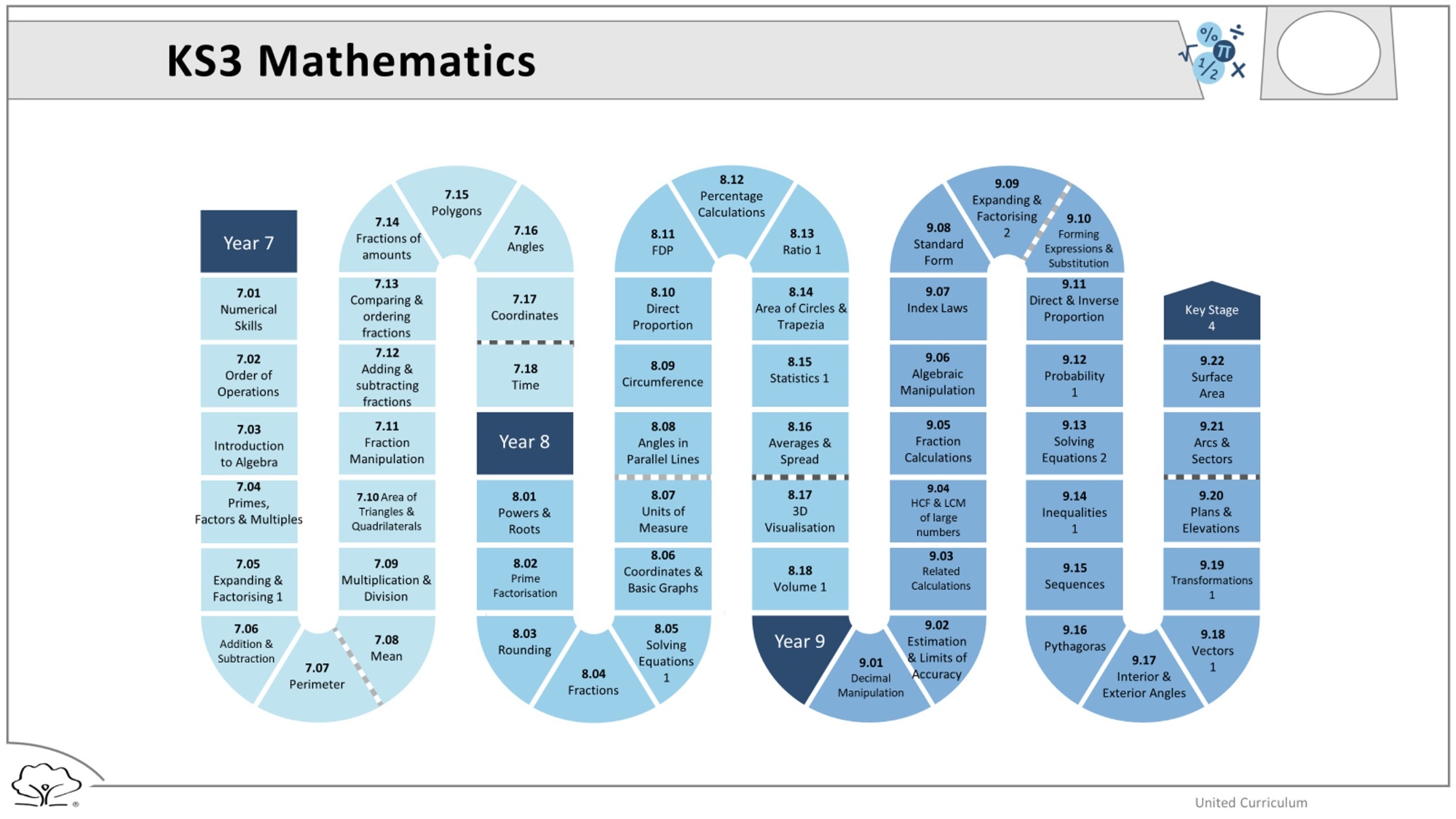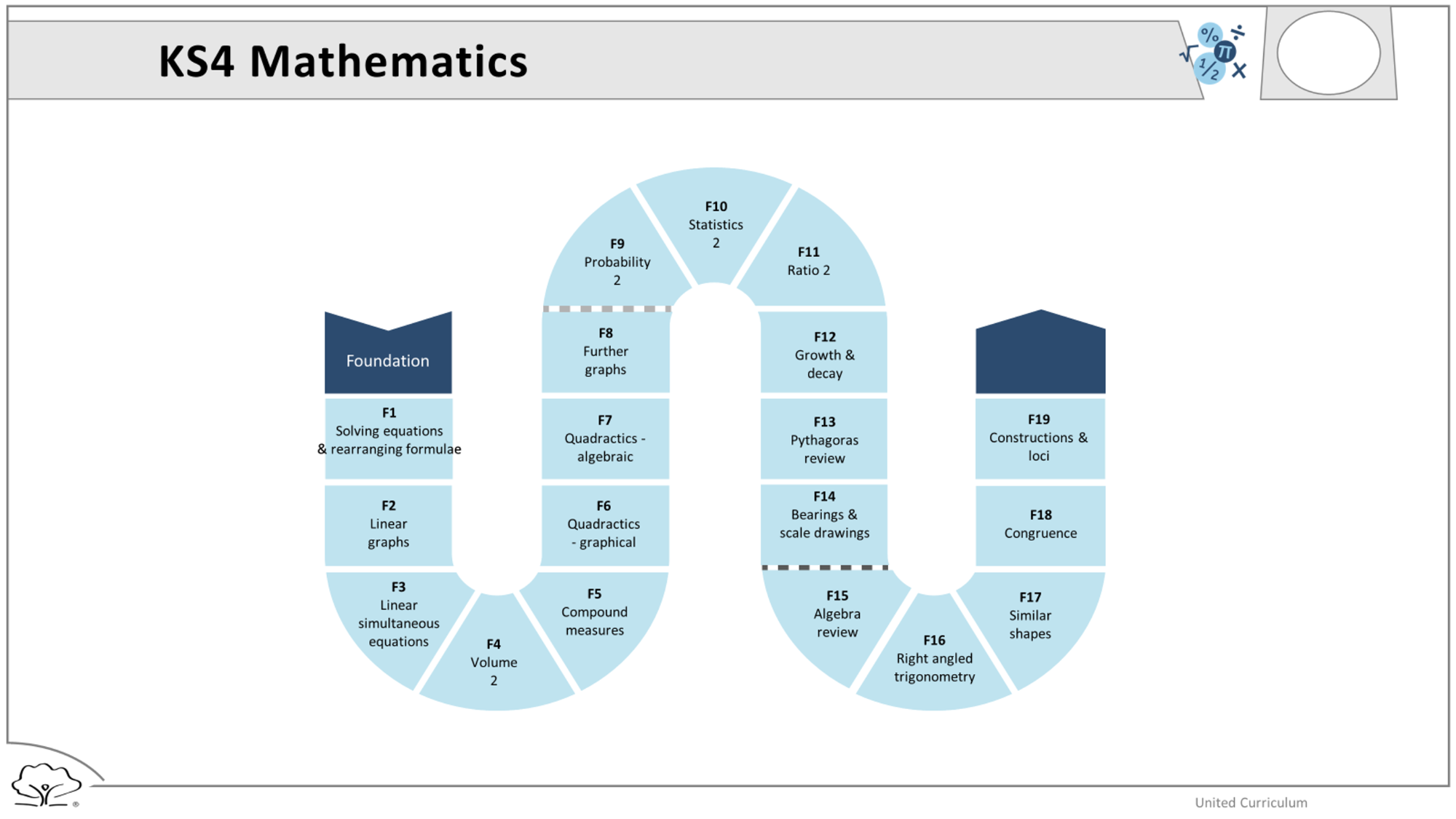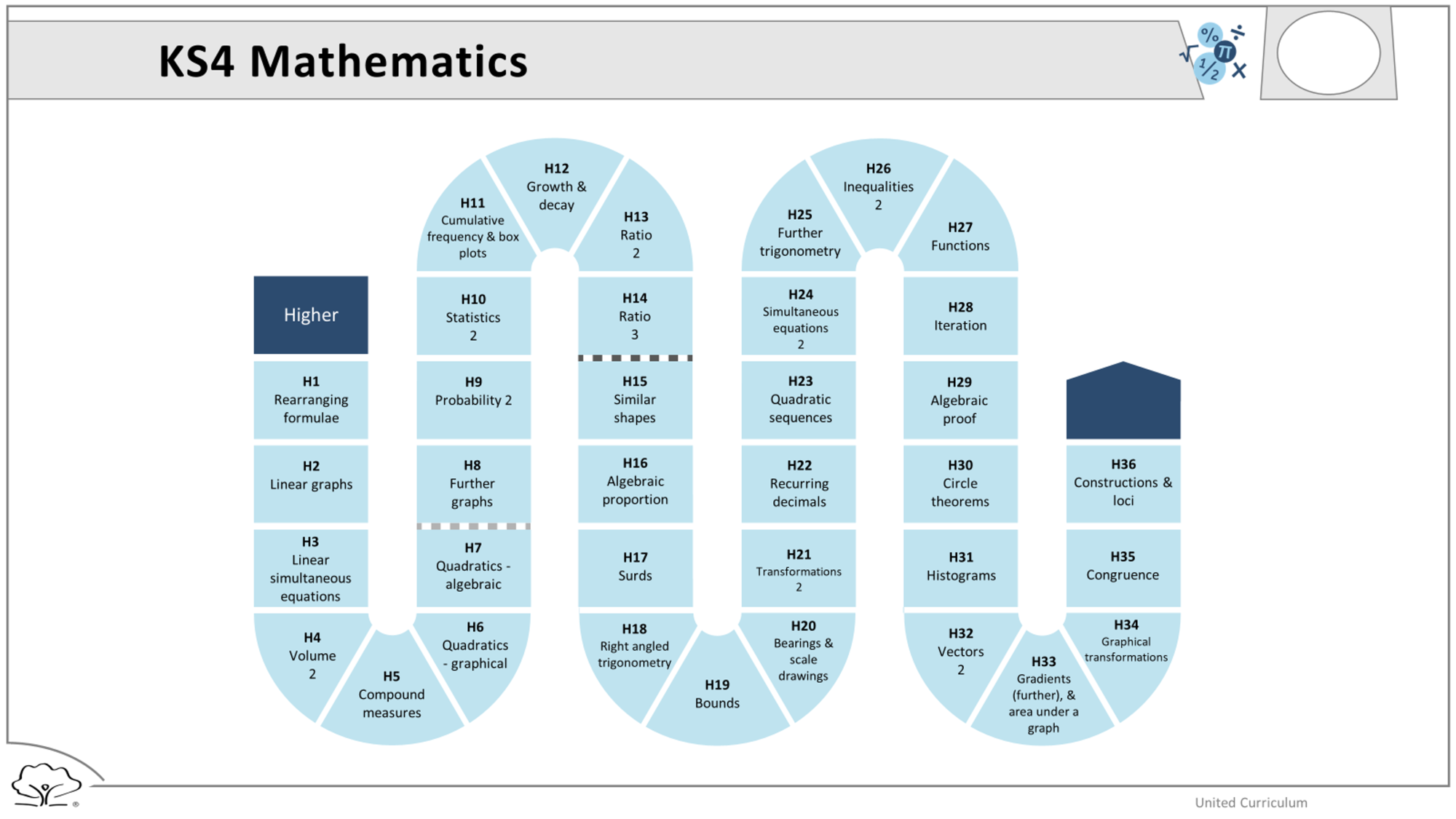Mathematics
Please note that our subject pages are currently being updated as we move across to the United Learning Curriculum. If you have any queries regarding our curriculum, please contact us.
Many, if not all of the challenges the world faces, are reliant on Mathematics to help find solutions, from financial institutions trying to promote growth, to engineers working on carbon capture to combat climate change. Therefore, it is vital that our curriculum is designed to develop mathematicians who are both fluent in key skills and are also capable of solving complex problems that combine several elements. Joining United learning has given us access to a carefully crafted curriculum that has been devised by experts, whilst still allowing us to shape our provision around each individual cohort of pupils at Heath Lane Academy.
The Maths curriculum has been carefully designed to continuously interleave content, enabling pupils to revisit prior knowledge, whilst also constructing the building blocks for future topics. Throughout all topics there is an intentional focus on numeracy, which will support pupils their study of Maths and enable them to tackle mathematical challenges in other subjects. We begin each academic year in KS3 with a numerical topic, for example (7.01) numerical skills, (8.01) powers and roots, and (9.01) decimal manipulation.
Our Maths teachers understand and appreciate that pupils will be far better equipped to apply mathematical thinking to a problem if their working memory is not overloaded with basic calculations. In other words, we cannot expect pupils to show mathematical expertise until they have acquired fluency with numbers. Therefore, our teachers carefully check pupils’ understanding regularly in lessons, in order to plan when and how to move onto problem-solving tasks.
During KS3, all pupils follow the same curriculum sequence, with teachers making adaptations for their groups where necessary.
In KS4, we have a foundation and higher pathway that builds on the knowledge pupils have acquired during KS3 and prepares them for their GCSE examinations at the end of Year 11. More importantly, our Maths curriculum builds pupils’ mathematical confidence and competency for life beyond their time at Heath Lane Academy. Just as for KS3, in KS4 pupils follow the same curriculum sequence wherever possible, and teachers make adaptations for their groups where necessary. This approach ensures pupils are exposed to suitable content depending on their attainment and ability, giving them the best experience possible.



Computer Science
Please note that our subject pages are currently being updated as we move across to the United Learning Curriculum. If you have any queries regarding our curriculum, please contact us.
The Computer Science curriculum equips pupils with the digital literacy skills to go into a world dependant on the use of digital technology.
In Year 7, pupils learn about concepts of cyber security - dealing with online threats and how to keep data secure. They start to build skills in computational thinking through simple block programming before creating games based on more complex sequencing nad programming.
Moving into Year 8, pupils explore text based programming and build their understanding of computer software and networks.
In Year 9, pupils embark on a major programming project, cover Internet programming languages and advanced spreadsheets.
Starting In Year 10, some pupils may continue study towards sitting OCR GCSE Computer Science, which focuses on more advanced programming, computational thinking and algorithms. The majority of pupils will study practical applications of computing via the Edexcel BTEC Digital Information Technology qualification.
Year 7
| Autumn 1 | Impact of Technology – Collaborating Online Respectfully |
| Autumn 2 | Python |
| Spring 1 | Networks: from semaphores to the Internet NCCE |
| Spring 2 | Flowol |
| Summer 1 | Using Media – Gaining Support for a Cause NCCE |
| Summer 2 | Developing for the Web NCCE |
Year 8
| Autumn 1 | Computer Systems NCCE |
| Autumn 2 | Python PRIMM |
| Spring 1 | Cybersecurity NCCE |
| Spring 2 | Python |
| Summer 1 | Spreadsheets |
| Summer 2 | HTML CSS and Java Script CS UK |
Year 9
| Autumn 1 | Representations: going audio-visual |
| Autumn 2 | Programming Project |
| Spring 1 | Physical Computing |
| Spring 2 | Networks |
| Summer 1 | Advanced Spreadsheets |
| Summer 2 | Java Script |
Year 10
| Autumn 1 | Programming |
|
Autumn 2 Spring 1 |
Data Representation |
| Spring 2 | System Architecture/Memory |
| Summer 1 | Storage and System Software |
| Summer 2 | Networks and Cyber Security |
Year 11
|
Autumn 1 |
Computational thinking and algorithms & Programming |
| Autumn 2 | Programming and Translators and facilities of languages |
|
Spring 1 Spring 2 Summer 1 |
Revision/Reteach |
| Summer 2 |
Digital Information Technology
Year 10
|
Autumn 1
|
Component 1 A
Component 3 Modern technologies |
| Autumn 2 |
Component 1 A
Component 3 Cyber security |
|
Spring 1
|
Component 1 B
Component 3 The wider implications of digital systems |
| Spring 2 |
Component 1 B
Component 3 Planning and communication in digital systems |
|
Summer 1 Summer 2 |
Component 1C Develop and review a user interface Exam |
Year 11
| Autumn 1 |
Component 2A Investigate the role and impact of using data on individuals and organisations Revision |
| Autumn 2 |
Component 2B Create a dashboard using data manipulation tools Revision |
| Spring 1 |
Component 2B Create a dashboard using data manipulation tools Revision |
| Spring 2 |
Component 2C Draw conclusions and review presentation methods Exam |
| Summer 1 | |
| Summer 2 |


